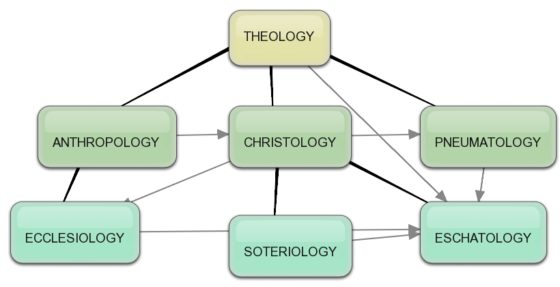
Systematic Theology
What is Systematic Theology?
Systematic Theology is defined by Theopedia as a discipline that addresses theological topics one by one and attempts to summarize all the biblical teachings.
A more in-depth definition would be that it’s a method of studying God’s word with the principle that all Scriptures reveal a God-ordained, single, well-ordered and consistent system of doctrines for believers.
There are several topics contained in the different books in the Bible but no one book has all the information about each topic. So what systematic theology does is gather all the information and then organize it into categorical systems. In other words, systematic theology gives us the answer to what the Bible as a whole teaches about a certain topic.
Why is Systematic Theology important?
So why is it important for us to study systematic theology? Systematic theology ensures that all the major or fundamental doctrines of the Bible are well received and acknowledged by the believer. It ensures that our understanding of the doctrines is as consistent as it could possibly be.
By comparing scriptures with scriptures, systematic theology precludes and dismisses all potential inconsistencies in one’s doctrinal understanding. The Scriptures are then brought together and compared side-by-side according to each particular theme, and any scriptures that seem to contradict the others are ironed out and harmonized. It is also a useful tool for edifying and equipping Christians to dialogue and interact knowledgeably and reasonably with others.
Lastly, systematic theology is an essential and comprehensive explanation of the Christian worldview. It brings all the truths of the Word of God into a well-organized system which is an invaluable tool for explaining to the world what Christianity is all about. It is also an essential tool for defending the Christian faith logically and scripturally.
Systematic Theology Categories:
- Theology Proper/Pateriology – the study of God the Father
- Christology – the study of Jesus Christ, God the Son
- Pneumatology – the study of God the Holy Spirit
- Bibliology – the study of the Bible
- Soteriology – the study of salvation
- Ecclesiology – the study of the Church
- Angelology and Demonology – the study of angels and demons from a biblical standpoint
- Hamartiology – the study of sin
- Christian Anthropology – the study of man
- Eschatology – the study of the end times
Recommended Resource: Systematic Theology: An Introduction to Biblical Doctrine By Wayne Grudem
The Christian church has a long tradition of systematic theology, that is, studying theology and doctrine organized around fairly standard categories such as the Word of God, redemption, and Jesus Christ. This introductory textbook on systematic theology has several distinctive features:
- A strong emphasis on the scriptural basis for each doctrine and teaching
- Clear writing, with technical terms, kept to a minimum
- A contemporary approach, treating subjects of special interest to the church today
- A friendly tone, appealing to the emotions and the spirit as well as the intellect
- Frequent application to life
- Resources for worship with each chapter
- Bibliographies with each chapter that cross-reference subjects to a wide range of other systematic theologies